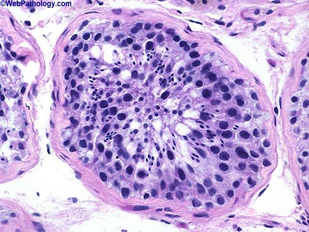 "What do you do with the parts of yourself you don’t like? The angry parts that worry you, the hurt parts that embarrass you, the ailing parts that scare you? Do you pull up a chair and allow these unwanted feelings and parts and memories to settle in with you? Do you get to know these elements of yourself, seeking to understand yourself more fully? Or do you deny them, reject them, hide them, or even pluck them out like a distracting eye, or cut them off like a sinning hand? Of course, we all do all of these things, we spin from one strategy to the other, depending on how worn out we are or how strong our support system is. We can offer welcome – whether it’s patiently nursing a cold or thoughtfully working through old trauma – when we’re feeling secure, when we’re not worried about running out of sick days while nursing that cold, or in a toxic relationship while trying to work through that old trauma.... We get mixed messages from scripture about what to do with the parts in our bodies and selves that we don’t like, that have been a source of suffering. In Matthew, Jesus says to pluck out our offensive eye or cut off our loathsome hand. But we also read so many healing stories in which Jesus brought new function to parts of people’s bodies that they had bemoaned and condemned. Jesus says to forgive countless times; why not forgive our offensive eye or loathsome hand? We tend to follow the advice given in Matthew when it comes to disease. We use surgery, antibiotics, radiation and other medical means to pluck out or cut off the parts of our bodies that we don’t like, the parts that are damaging us. What we do with cancer is the epitome of this – while we “manage” and “treat” heart disease, we “fight” and “battle” cancer. Cancer is absolutely one of the scariest and most fatal diseases we face, and our metaphors reflect the intensity of our fear and resentment. In 2009 President Obama wrote, “Now is the time to commit ourselves to waging a war against cancer as aggressive as the war cancer wages against us” as he increased funding for cancer research. I can’t agree with Obama that cancer is waging a war against us. First, because cancer is something that our own bodies create as our cells reproduce and mutate. It’s mind-boggling, actually. Our cells naturally reproduce as we grow and heal and age. Some of these cells mutate, or don’t reproduce identical offspring. And these mutations can lead to cherished new developments – like our history-changing opposable thumbs. And these mutations can lead to both benign and cancerous tumors.... We don’t feel invaded by heart disease the way we feel invaded by cancer. Isn’t that fascinating? Heart disease is the leading cause of death in this world and it’s caused by the same sorts of things that cause cancer (heredity, lifestyle, pollution). But we don’t say heart disease is waging war on us. Cancer feels predatory in a way many illnesses don’t, as cancer cells rampantly divide, sucking up nutrients and blocking blood flow. They act like a parasite within us, yet parasites are a different species than their host, and cancer cells are the mutated offspring of our own healthy cells. Waging war on cancer means waging war on our own bodies – and it sure feels like it for many people gutted by chemo and burned by radiation. Military metaphors haven’t helped us combat terrorism or obliterate drugs or destroy poverty. When it comes to the physical, mental and chemical illness within our own bodies, I don’t think these metaphors are going to save us any better than wars on terrorism, drugs or poverty do. The danger of a war on cancer is that we might lose – then we’re not only dying, but we’ve failed, too. Humans used to believe that illness was the result of sin. Now it can be the result of not staying positive enough, not praying enough, not trying enough treatments, not fighting hard enough...."
1 Comment
Beth A McCreary
4/15/2017 12:59:27 pm
Awesome!
Reply
Leave a Reply. |
Archives
January 2022
|

 RSS Feed
RSS Feed